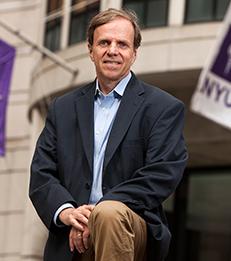Opinion
How Mark Zuckerberg Really Needs to Reform Facebook
—


The company needs to stop outsourcing responsibility for proper governance of harmful content and shying away from appropriate government regulation of political ads.
By Michael Posner
In the last two years, Facebook asserts, it has focused more attention on “content governance and enforcement issues” than on any other topic. Independent assessments, such as a 2018 NYU-Stanford study, confirm a dramatic reduction of what researchers called “fake news” on Facebook’s platform. And yet despite this measurable progress, the company continues to send mixed signals on undertaking reform and resists making a few basic changes that would fundamentally address some of its core problems. On Sunday, in The Washington Post, Facebook CEO Mark Zuckerberg called for “new rules” to govern the Internet. While he focused on many of the right issues, the key reforms he proposed miss the mark.
To his credit, Zuckerberg acknowledged that “Internet companies should be accountable for enforcing standards on harmful content.” But he is less than clear about to whom they should be accountable. Though he doesn’t say so, Facebook and the other Internet platforms are fiercely resistant to content regulation by governments, as they should be, especially from governments in places like Iran , China or Russia that seek to stifle dissenting voices. But his article took a confusing and wrong turn by also announcing that he has come to believe that Facebook “shouldn’t make so many important decisions about speech on our own.”
Zuckerberg attempts to resolve the tension between his desire for standards and his view that the company should not set or enforce them by noting that Facebook is creating “an independent body so people can appeal our decisions.” One has to know some social media history to sort out what’s going on here. Facebook and the other Internet giants for years have promoted the unhelpful notion that they cannot be “arbiters of the truth.” While they are not akin to editors of The Washington Post or New York Times, they also are more than passive caretakers of digital platforms. Given the speed of the Internet and the resources needed to monitor and manage harmful content, they cannot outsource responsibility for these essential functions and need instead to adopt a new paradigm. A starting point would be a commitment on their part to take down all provably untrue content, especially in the political realm.
Read the full Forbes article.
___
Michael Posner is a Professor of Business and Society and Director of the NYU Stern Center for Business and Human Rights.
To his credit, Zuckerberg acknowledged that “Internet companies should be accountable for enforcing standards on harmful content.” But he is less than clear about to whom they should be accountable. Though he doesn’t say so, Facebook and the other Internet platforms are fiercely resistant to content regulation by governments, as they should be, especially from governments in places like Iran , China or Russia that seek to stifle dissenting voices. But his article took a confusing and wrong turn by also announcing that he has come to believe that Facebook “shouldn’t make so many important decisions about speech on our own.”
Zuckerberg attempts to resolve the tension between his desire for standards and his view that the company should not set or enforce them by noting that Facebook is creating “an independent body so people can appeal our decisions.” One has to know some social media history to sort out what’s going on here. Facebook and the other Internet giants for years have promoted the unhelpful notion that they cannot be “arbiters of the truth.” While they are not akin to editors of The Washington Post or New York Times, they also are more than passive caretakers of digital platforms. Given the speed of the Internet and the resources needed to monitor and manage harmful content, they cannot outsource responsibility for these essential functions and need instead to adopt a new paradigm. A starting point would be a commitment on their part to take down all provably untrue content, especially in the political realm.
Read the full Forbes article.
___
Michael Posner is a Professor of Business and Society and Director of the NYU Stern Center for Business and Human Rights.
